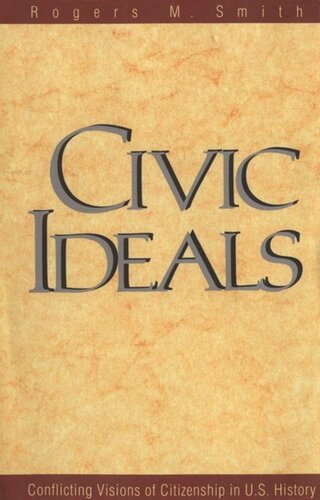

Most ebook files are in PDF format, so you can easily read them using various software such as Foxit Reader or directly on the Google Chrome browser.
Some ebook files are released by publishers in other formats such as .awz, .mobi, .epub, .fb2, etc. You may need to install specific software to read these formats on mobile/PC, such as Calibre.
Please read the tutorial at this link: https://ebookbell.com/faq
We offer FREE conversion to the popular formats you request; however, this may take some time. Therefore, right after payment, please email us, and we will try to provide the service as quickly as possible.
For some exceptional file formats or broken links (if any), please refrain from opening any disputes. Instead, email us first, and we will try to assist within a maximum of 6 hours.
EbookBell Team

4.1
60 reviewsIs civic identity in the United States really defined by liberal, democratic political principles? Or is U.S. citizenship the product of multiple traditionsnot only liberalism and republicanism but also white supremacy, Anglo-Saxon supremacy, Protestant supremacy, and male supremacy? In this powerful and disturbing book, Rogers Smith traces political struggles over U.S. citizenship laws from the colonial period through the Progressive era and shows that throughout this time, most adults were legally denied access to full citizenship, including political rights, solely because of their race, ethnicity, or gender. Basic conflicts over these denials have driven political development and civic membership in the U.S., Smith argues. These conflicts are what truly define U.S. civic identity up to this day.
Others have claimed that nativist, racist, and sexist traditions have been marginal or that they are purely products of capitalist institutions. In contrast, Smith’s pathbreaking account explains why these traditions have been central to American political and economic life. He shows that in the politics of nation building, principles of democracy and liberty have often failed to foster a sense of shared "peoplehood" and have instead led many Americans to claim that they are a "chosen people," a "master race" or superior culture, with distinctive gender roles. Smith concludes that today the United States is in a period of reaction against the egalitarian civic reforms of the last generation, with nativist, racist, and sexist beliefs regaining influence. He suggests ways that proponents of liberal democracy should alter their view of U.S. citizenship in order to combat these developments more effectively.